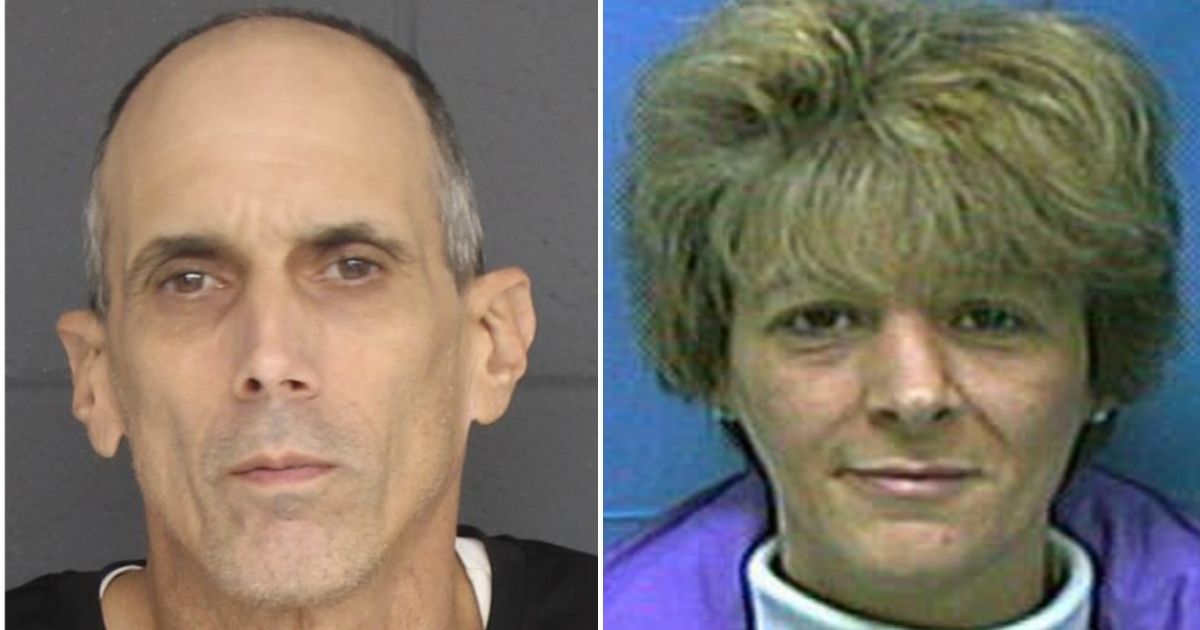On March 23, 2001, 41-year-old Rose Marie Moniz was found dead in her home in New Bedford, Massachusetts, by her father when he arrived to take her to a doctor’s appointment.
According to a statement released by Bristol County District Attorney’s Office and District Attorney Thomas M. Quinn III, when the father arrived he found kitchen items all over the floor, Moniz’s purse contents strewn about and money missing from her wallet.
Moniz was found in the bathroom, lying in a pool of blood. She appeared to have been beaten with a conch shell, a fireplace poker and a cast-iron kettle. An autopsy showed skull fractures, broken nasal bones, a broken cheekbone, multiple lacerations and bleeding from her ears, as well as signs of blunt-force trauma all over her body.
[firefly_embed]
[/firefly_embed]
There were no signs of forced entry, and the trail went cold.
Two years later, in June 2003, another woman in New Bedford, Massachusetts, was attacked, robbed and nearly beaten to death with a tire iron. Maribel Martinez-Alegria was found by a good Samaritan after she’d been attacked and pushed out of her attacker’s truck into a dark alley.
The next month, Alegria spotted the same attacker in his truck repeatedly driving past her house, so she alerted family and authorities. Her nephew and five others jumped into a minivan and tracked the truck down, following him even as he tried to lose them.
Eventually police joined in the chase. The suspect rammed his truck into one of the police cars, injuring the officer, in an apparent attempt to get away, but he was ultimately caught.
The man, David Reed, was charged with robbery and assault in Alegria’s case as well for ramming the police car — but he was released on bail. Perhaps unsurprisingly, he failed to show up for his court date and fled the state. It was not until May 2015 that he was caught and brought back to Massachusetts.
Sadly, Alegria had already passed months before his capture. Citing insufficient evidence, the charges against him in her case were dismissed.
In 2016, Reed was sentenced to serve up to four years in prison for felony bail jumping, fleeing from police and crashing into the police car.
Because of those convictions, Reed was required to submit DNA to the Combined DNA Index System (CODIS), which became a very important piece of the puzzle.
In 2019, investigators started to look back into Moniz’s cold case. As they reconsidered the scene and the evidence, they realized that the wounds on Moniz’s face were consistent with the kind of damage that the conch shell could inflict — and in order to hold the conch shell steadily enough to create the sort of damage her face sustained, the suspect would likely have had to grasp it by putting his fingers inside the shell.
Upon this realization, the investigators were able to find and submit DNA samples found inside the shell. They sent the resulting full profile to CODIS, and got a hit: David Reed, who happened to be Moniz’s half-brother.
In August 2020, a Massachusetts State Police lieutenant who was helping with the cold case approached Reed at his home and questioned him. When she left, Reed fled the state, eventually passing through Alabama, California, Hawaii, New York, Pennsylvania and Rhode Island.
On Sept. 10 this year, Reed, now 53, was finally caught and has been indicted for armed robbery and murder charges in Moniz’s case, as well as a renewed indictment in Alegria’s case after more evidence has come to light.
[firefly_embed]
[/firefly_embed]
“I’m pleased to announce the indictments related to the previously unsolved cold case homicide of Rose Marie Moniz,” District Attorney Quinn said. “She was a mother who was brutally murdered inside the sanctity of her own home.
“Thanks to the efforts of my Cold Case Unit, along with detectives from our state police unit and New Bedford Police, we were able to bring some sense of relief to the victim’s family, all of whom suffered for the past 20 years from not knowing what happened to Ms. Moniz.
“This case highlights what we are doing in regards to Cold Case homicides and rapes in our effort to bring justice to the families of victims and the entire community. We will continue to utilize all available resources to review cold cases and seek out new evidence. We look forward to prosecuting this case in open court.”
This article appeared originally on The Western Journal.
























